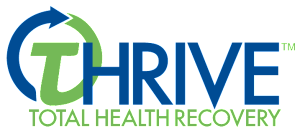Pros
- Outpatient programs can be significantly less expensive, as they do not provide around-the-clock care. They may also allow a person to continue living at home and to continue working in his or her current job; this ability to maintain an income stream and current residence offers further alleviation of the financial obligation of treatment.
- While many people find their family or partner to be the subject of stressful thinking or have members of their household that are also using substances, this is not the case for everyone. Some have found a benefit in maintaining a physical presence with their support system.
- Outpatient drug and alcohol treatment programs also allow a person to maintain responsibilities in the household, such as childcare and eldercare.
- A participant in an outpatient program can immediately take what they are learning into real-life scenarios.
Cons
- Outpatient programs only offer care during certain hours of certain days. Many who suffer from addiction or alcoholism describe their problem as feeling overwhelming and all-encompassing. The obsession, compulsivity and feelings of fear and hopelessness often don’t limit themselves to showing up during regular business hours.
- An outpatient program provides services to a person and sends them home each day, often to the same environment in which they were drinking and using. Because thought and behavior are habitual, and these habits can become very deeply ingrained in an addicted person, it is often difficult for people to stay sober in their home environment while they are still new to learning about themselves and the underlying reasons behind their addiction.
- One of the biggest conveniences of outpatient treatment is also one of its main downfalls. It can seem very appealing and convenient to stay plugged into daily life while seeking relief from addiction. However, even some of the most admirable and positive roles we play at home—parent, spouse, employee, friend—can provide easily justifiable reasons to focus on people and situations other than ourselves. Outpatient treatment does not allow the space for a person to turn down all of the noise of the daily grind to focus on finding a new way to relate to themselves and their addiction.
- An outpatient setting still allows for physical access to drugs and alcohol. If a person is having trouble abstaining from substances when faced with consequences from work or family, why will consequences from an outpatient center be any different?
- There is also a downside to a participant in an outpatient program taking what they’ve learned straight into a real world setting. Learning something in a session or group and then immediately implementing or observing it at home can certainly be beneficial. However, it can also be the emotional equivalent to spending one class showing someone how to tread water, then immediately throwing them into the deepest part of the ocean.
Pros
- Inpatient rehab program participants are monitored constantly, so someone who has severe medical or psychiatric symptoms can be more readily prevented from harming themselves or someone else.
- Inpatient care is designed for safety. This kind of treatment environment offers the most comprehensive oversight.
Cons
- Because inpatient treatment is mostly focused on harm reduction, inpatient facilities are secure and “lock-down” in nature. This can lead a person to feel that seeking recovery is somehow punitive and can, unfortunately, create an “us vs. them” mentality between those in the program and medical or clinical staff.
- Due to strict rules and boundaries related to safety, program participants have very limited independence or opportunity to learn and apply new ideas
Pros
- A residential treatment program offers 24/7 care. A person struggling with addiction often finds that drugs and alcohol provide anesthetization from emotional discomfort. Abstaining from these substances can initially create unexpected discomfort and, in response, compulsive behavior. A residential program provides a safe, secure and comfortable environment in which a person can feel these feelings (a necessary part of the recovery process) without access to drugs or alcohol.
- A residential facility provides an environment away from the one in which a person was drinking or using. This way, the participant can focus on a recovery program rather than environmental stimuli that may have contributed to the using thought patterns and behaviors in the first place.
- In a residential treatment program, a person is afforded a level of protection from outside distraction and influence. A residential recovery program can provide access to amazing clinical resources. To make the most of individual and group sessions, it is helpful to focus on oneself, rather than family conflict or caregiving, work pressure and social distraction.
- Particularly in residential programs that last longer than a couple of weeks, participants in the program have an opportunity to observe and experiment with new information in the context of a safe and supportive environment. By the time a person leaves the program, they have had an opportunity to experience things like sadness, conflict, anxiety and social responsibility. This way, a person can gain experiential knowledge in a safe setting and then carry it into their life at home.
Cons
- Because residential programs provide a high level of care over a longer period of time, they can be a financial stretch, particularly for those without insurance coverage.
- A residential program does require time away from one’s career and family.
- Residential treatment does not consist of constant, 24/7 medical supervision, so it may not be appropriate for those with extreme medical or psychological symptoms who are at imminent risk of harming themselves or others.
Gulf Breeze Recovery’s THRIVE® program is designed for those who struggle with chronic relapse. Gulf Breeze Recovery is now accepting select insurance policies as a full or partial payment for all program costs. The exciting news is that people can now attend one of the most highly regarded drug treatment centers in the country at little to no cost to them. If you or a loved one is looking to overcome an addiction and would like to know more about the program and facilities at Gulf Breeze Recovery, please contact us today.




 There is no one-size-fits-all solution. And some facilities that offer a higher level of care are simply not an option for everyone. But there are some factors to keep in mind as you weigh your options. There is an undeniable convenience to an outpatient program, and that type of program can be very helpful. However, if you have a history of relapse or any sort of conflict or responsibility at home that consumes a great deal of your emotional energy, a residential setting may be more ideal. Some important questions to ask yourself: How convenient would it be if the most convenient program doesn’t work? Is it worth the time investment to truly dedicate yourself to recovery? What is that you want out of this process? What is it that you need?
There is no one-size-fits-all solution. And some facilities that offer a higher level of care are simply not an option for everyone. But there are some factors to keep in mind as you weigh your options. There is an undeniable convenience to an outpatient program, and that type of program can be very helpful. However, if you have a history of relapse or any sort of conflict or responsibility at home that consumes a great deal of your emotional energy, a residential setting may be more ideal. Some important questions to ask yourself: How convenient would it be if the most convenient program doesn’t work? Is it worth the time investment to truly dedicate yourself to recovery? What is that you want out of this process? What is it that you need?





